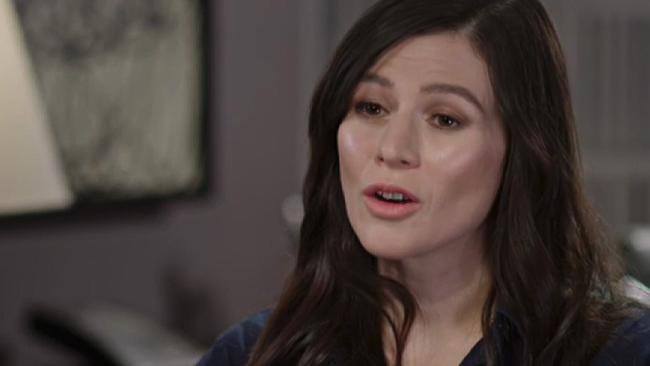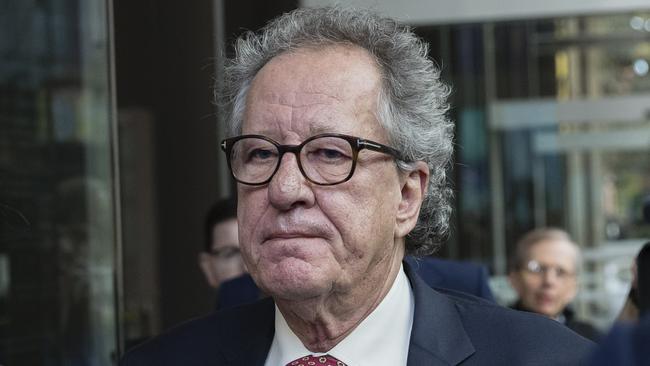Mystery witness barred from Geoffrey Rush defamation trial identified as Yael Stone
The mystery witness barred from the Geoffrey Rush defamation trial can now be revealed.

The mystery witness who was last year barred from giving evidence in the Geoffrey Rush defamation trial can now be identified as Orange is the New Black star Yael Stone.
Federal Court Justice Michael Wigney last year suppressed Stone’s identity and the details of her 85-page affidavit, in which she made allegations of a “sexual” nature against the Oscar winner, who recently won his defamation case.
Justice Wigney excluded her from the trial, on the grounds her proposed testimony had come too late.
Lawyers for Nine Entertainment were due to make an application to have the suppression order on Witness X’s identity lifted this morning, but after Rush’s lawyers agreed to the move overnight, Stone can now be identified.
However, the details of the allegations she proposed to make in court against Rush remain suppressed.
In an unexpected twist in last year’s defamation trial, The Daily Telegraph made an 11th hour bid to introduce a new witness, then known as Witness X, and now revealed to be Stone.
Justice Wigney excluded Witness X, while conceding her evidence was “of considerable importance” to the Telegraph’s case and could have proved true some of the imputations at issue, and otherwise mitigated damages if accepted.
Ultimately, he ruled against admitting her evidence, as this would have delayed the trial for months and caused “egregious prejudice” to Rush.
The Pirates of the Caribbean star successfully sued the Telegraph after it published articles in late 2017 claiming he had behaved inappropriately during a
Sydney theatre production in 2015-16.
In his judgment, delivered last month, Justice Wigney rejected the allegations. He found the Telegraph had failed to establish that its articles were substantially true, and criticised its coverage as “recklessly irresponsible” and “sensationalist”.
Meanwhile, in dramatic scenes at the Federal Court today, lawyers for The Daily Telegraph asked Justice Wigney to recuse himself, because of an alleged “apprehension of bias” arising from his judgment.
But in questioning The Daily Telegraph’s recusal application, Rush’s barrister Sue Chrysanthou accused the newspaper of engaging in a “campaign against the Federal Court” which was negatively affecting the “vindication of her client”, achieved one month ago.
Both sides agreed to an undertaking by which Nationwide News publications, including The Australian, will not repeat the imputations at the centre of the original trial until the matter is heard again on May 20.
Lyndelle Barnett, a barrister appearing for the Telegraph, said the newspaper’s recusal application related to how Justice Wigney’s judgment gave credit to witnesses who appeared for Rush, compared to how he dealt with the issue of credit for the newspaper’s witnesses.
The Telegraph last week filed an appeal document against Rush’s defamation victory, alleging in a court document that Justice Wigney’s judgment gave rise to an apprehension of bias, and that his awarding of $850,000 in special damages to the Oscar winner was “excessive.’’
Justice Wigney ruled that he would hear the paper’s recusal application, and consider arguments for the final sum for damages related to economic loss, on May 20.
He will also consider Rush’s lawyers’ application for permanent injunctions over articles that may defame him by referring to the King Lear allegations.



